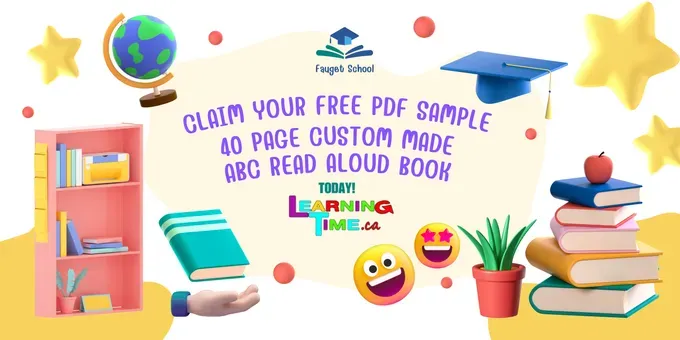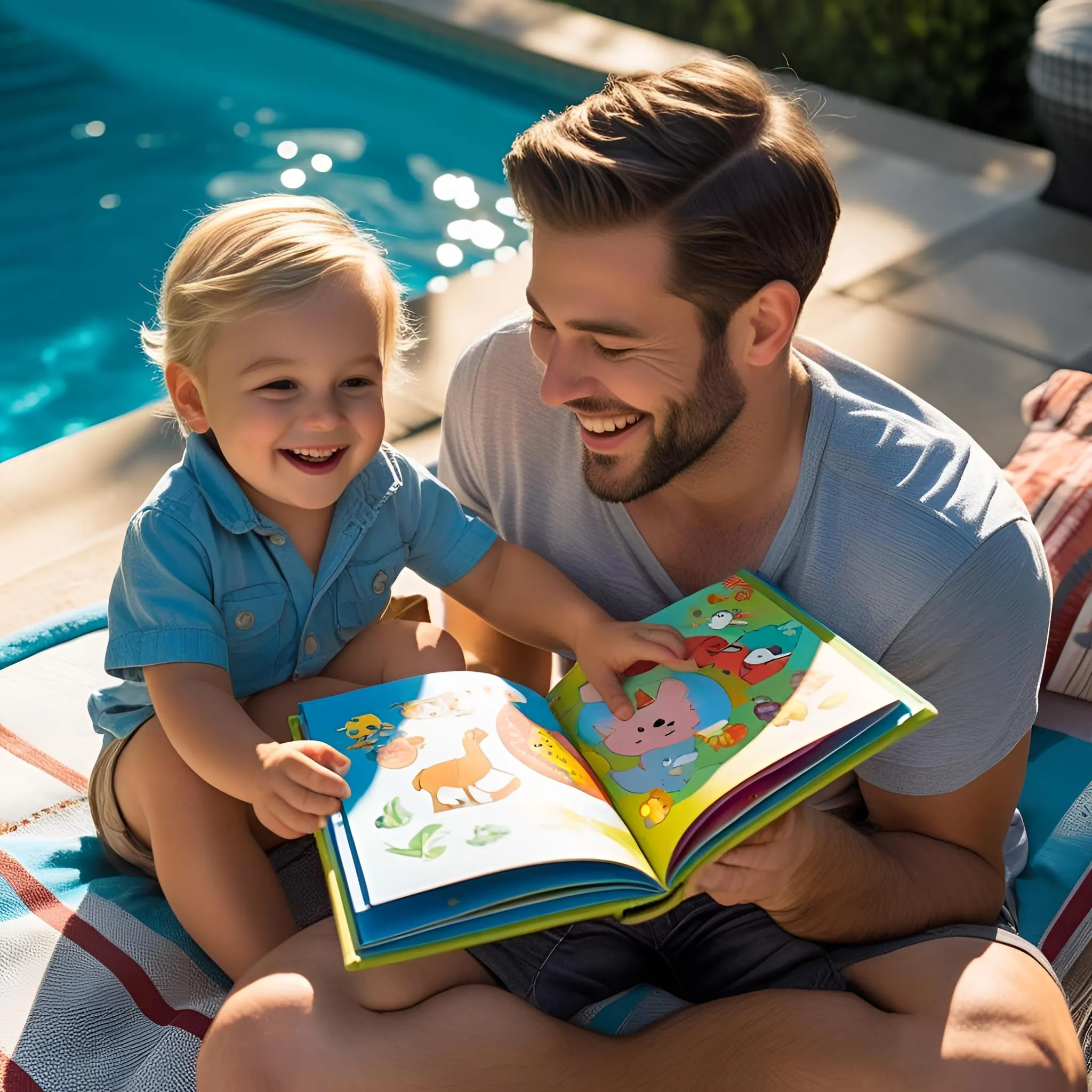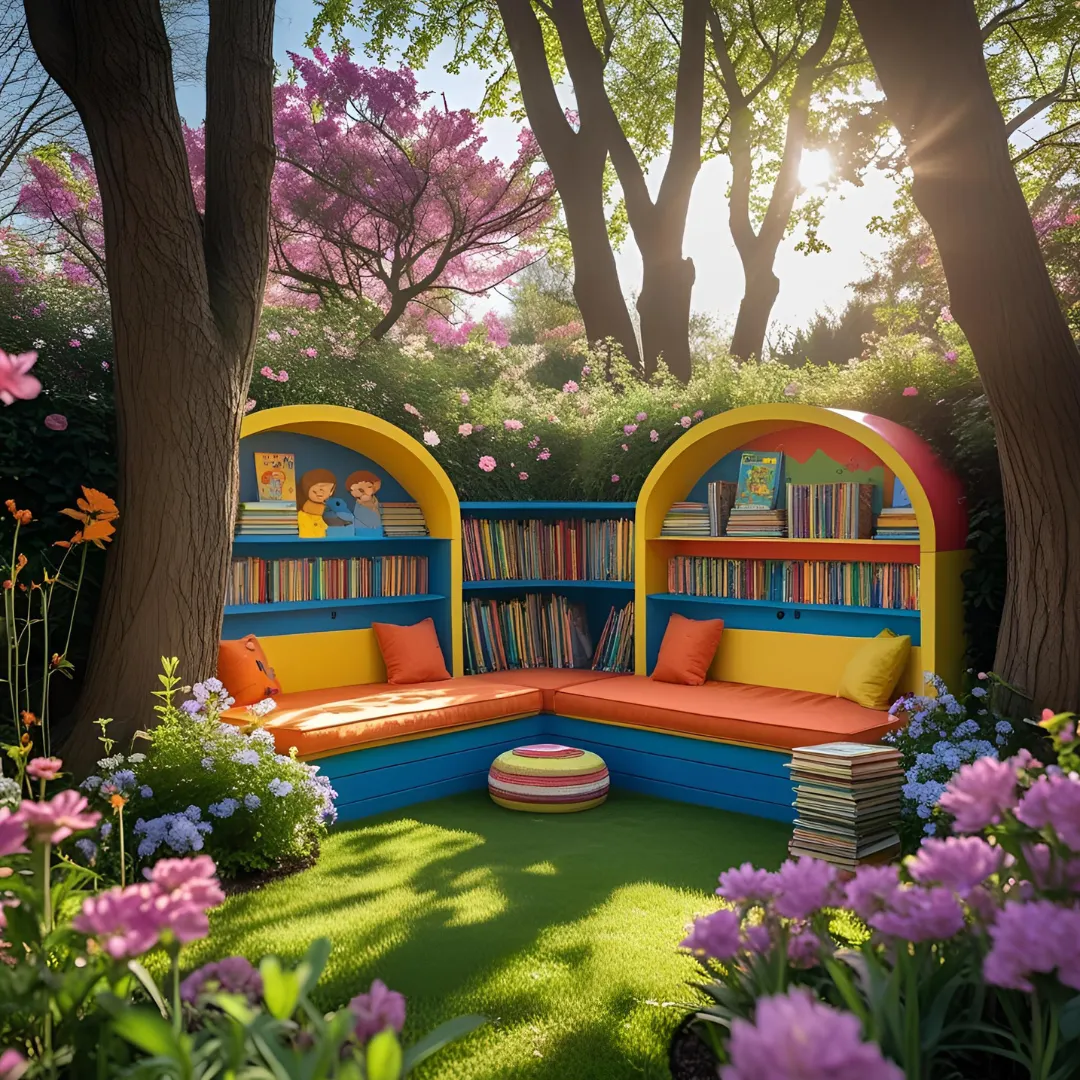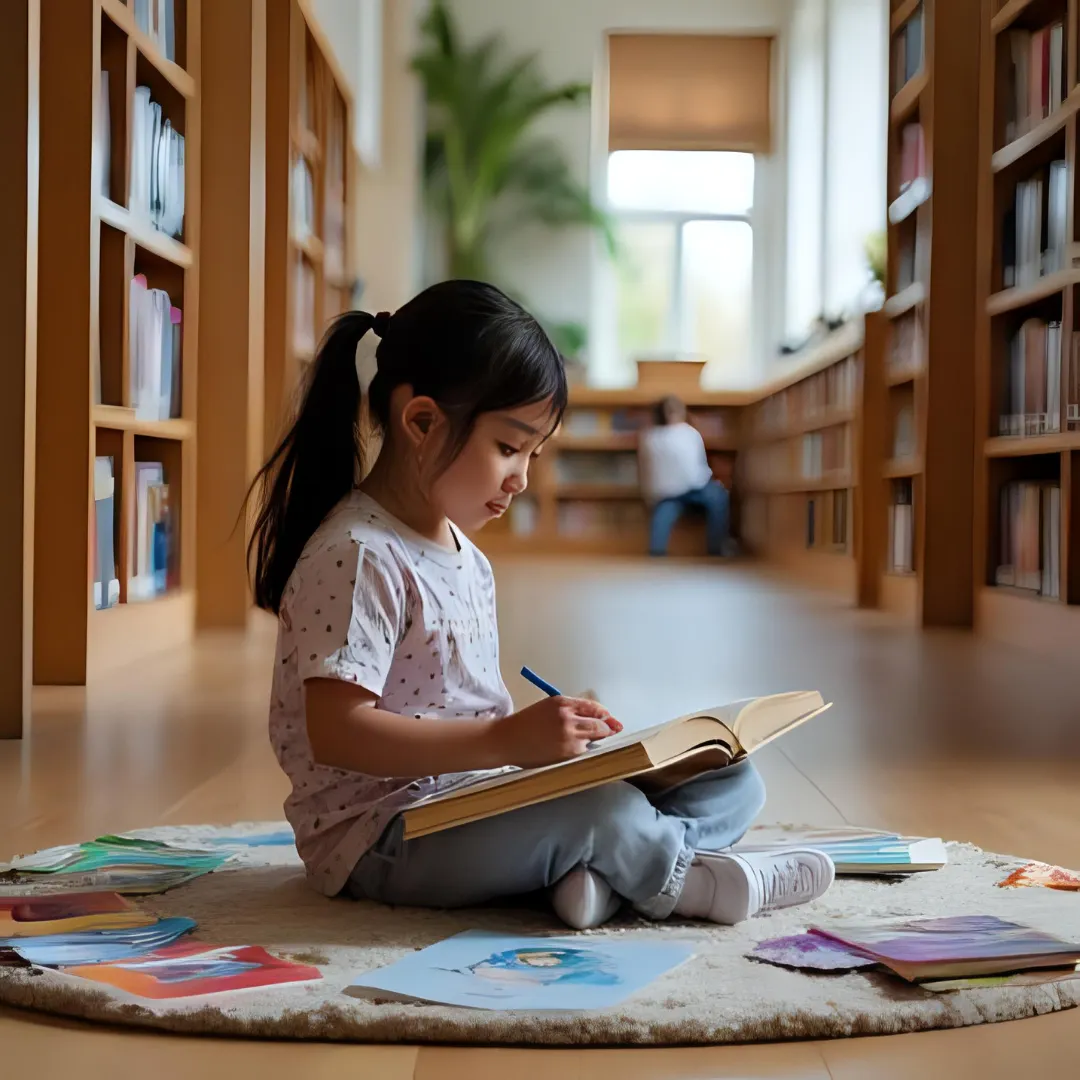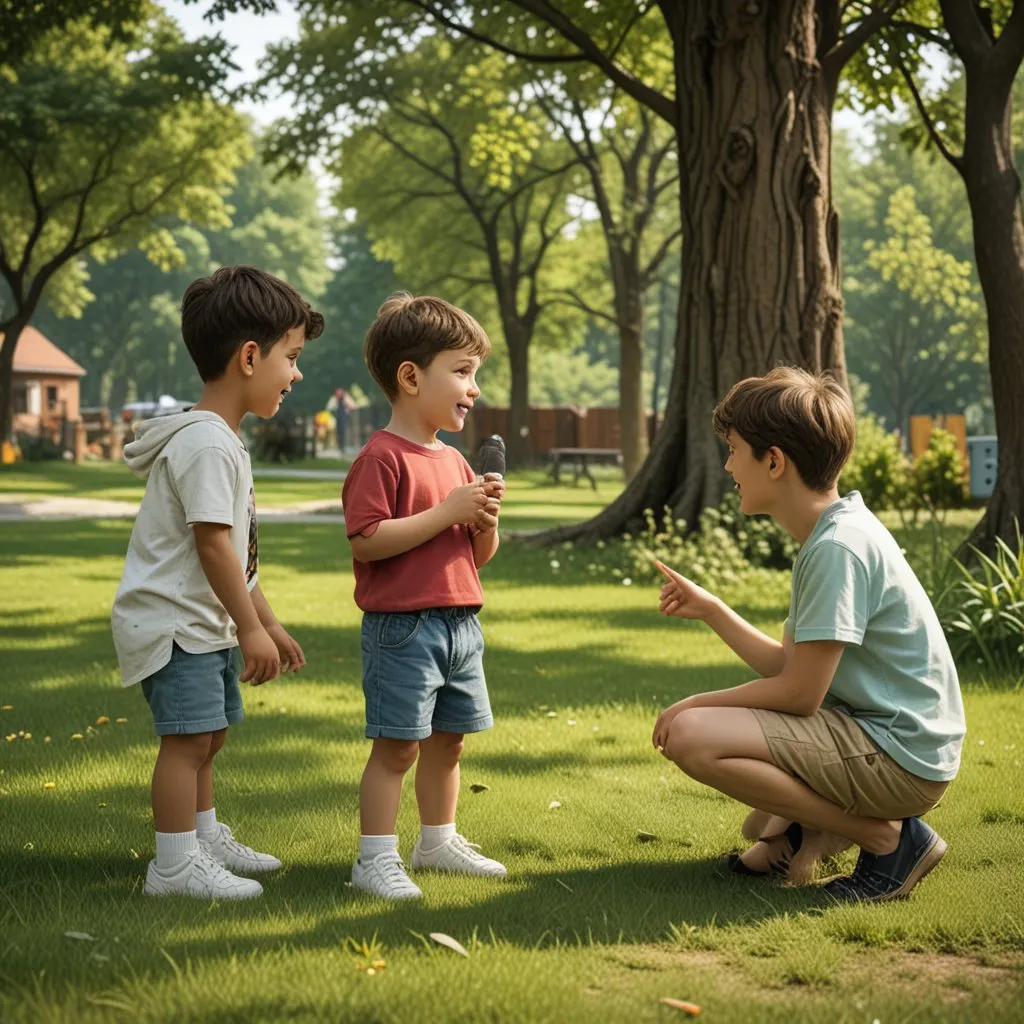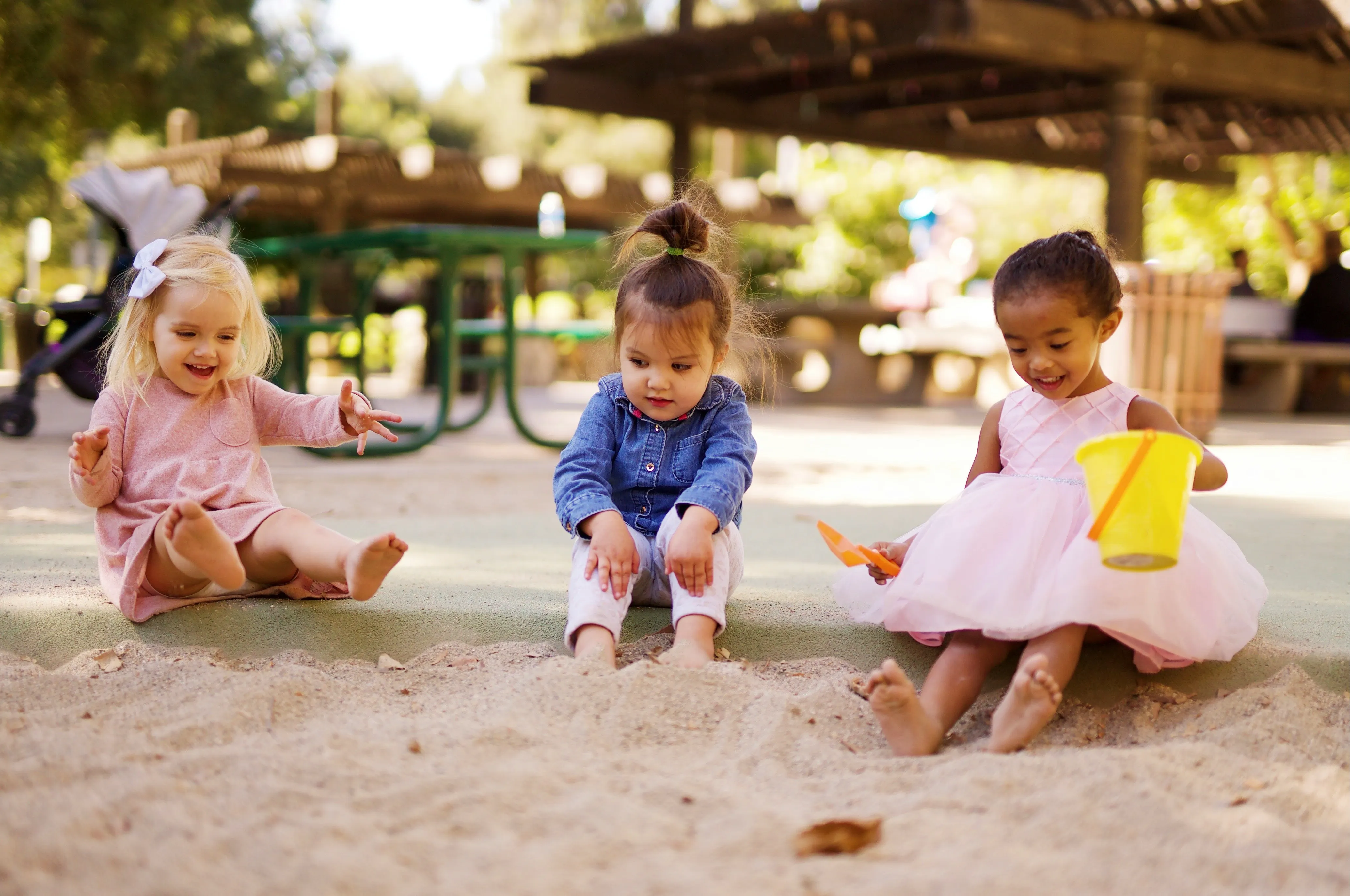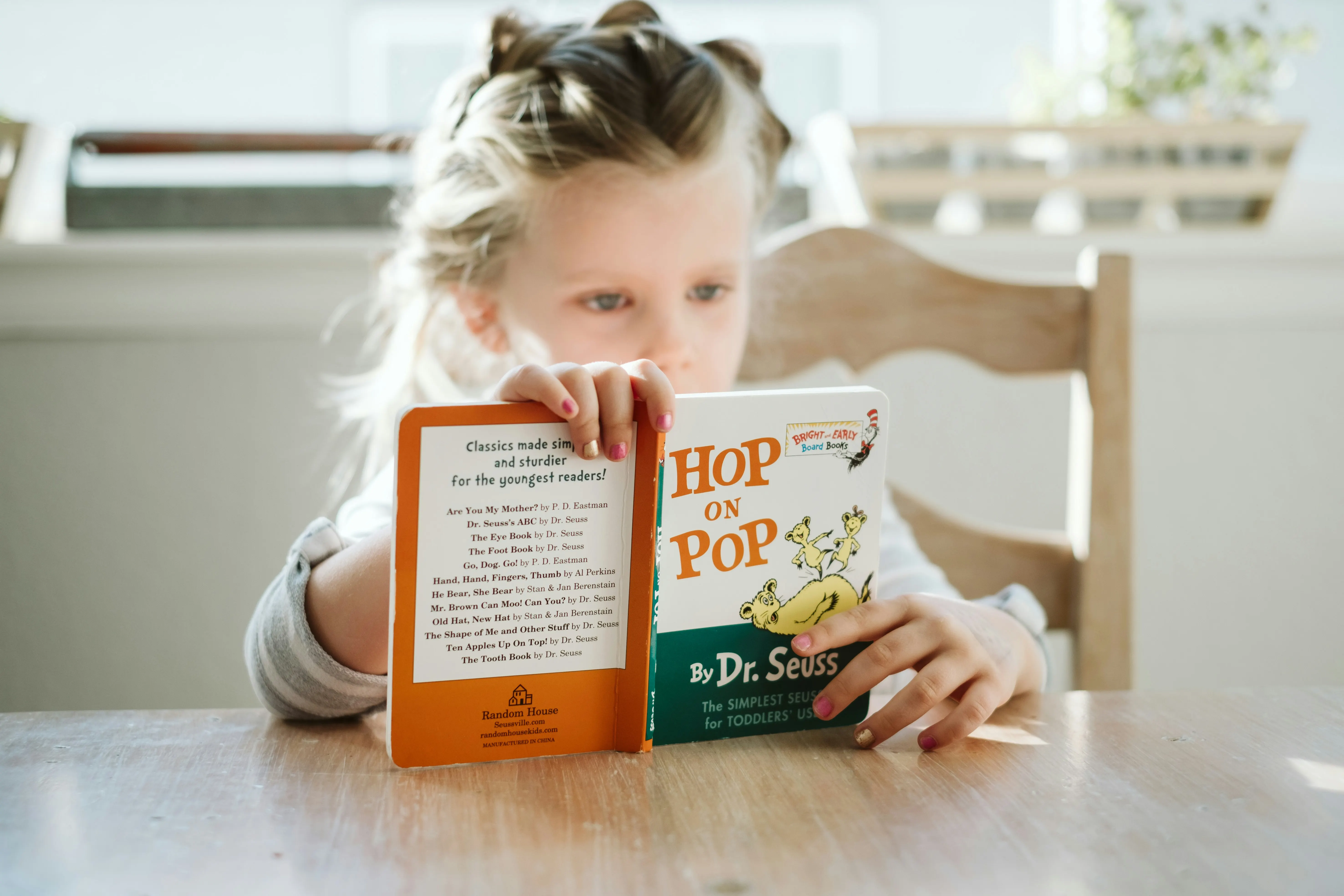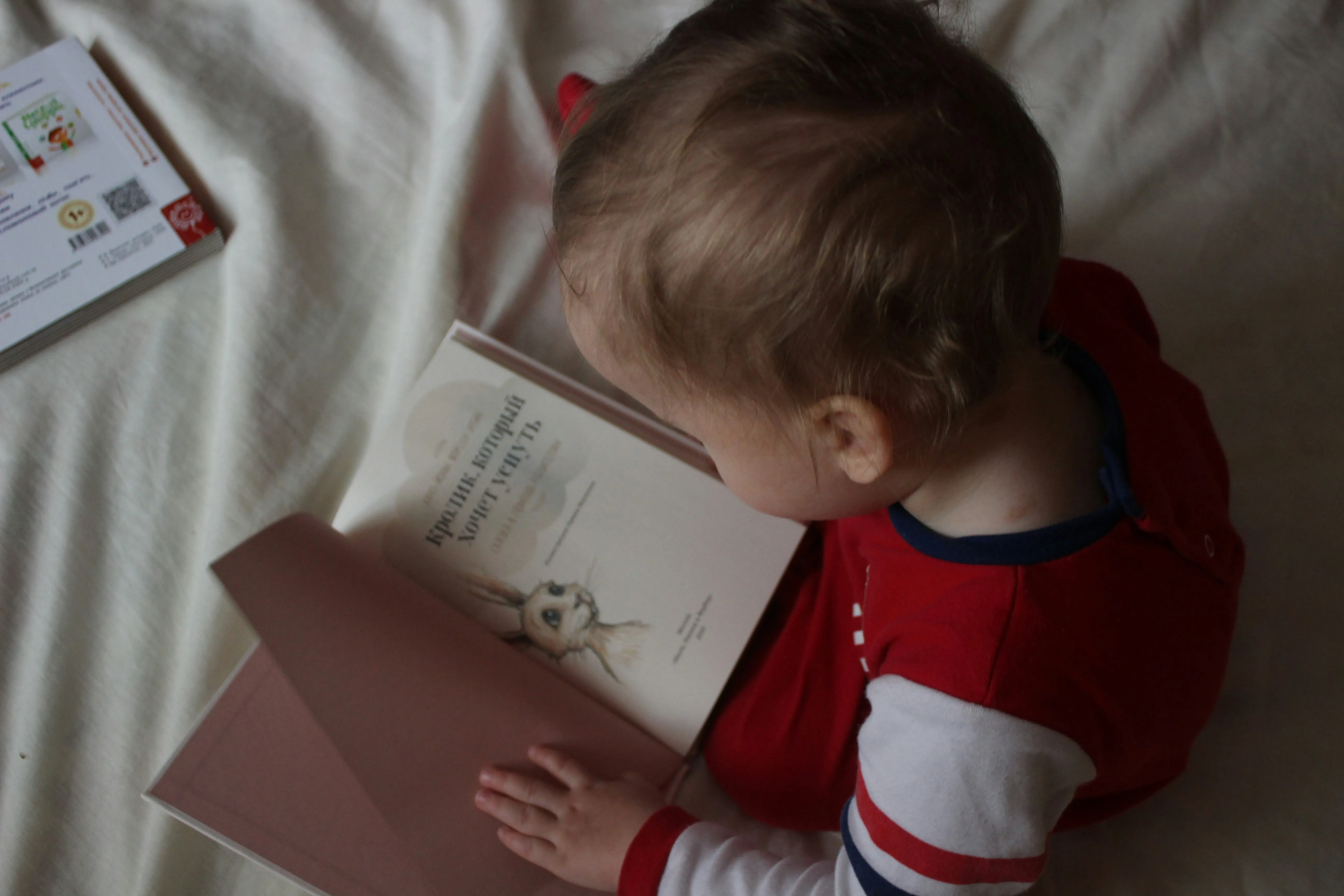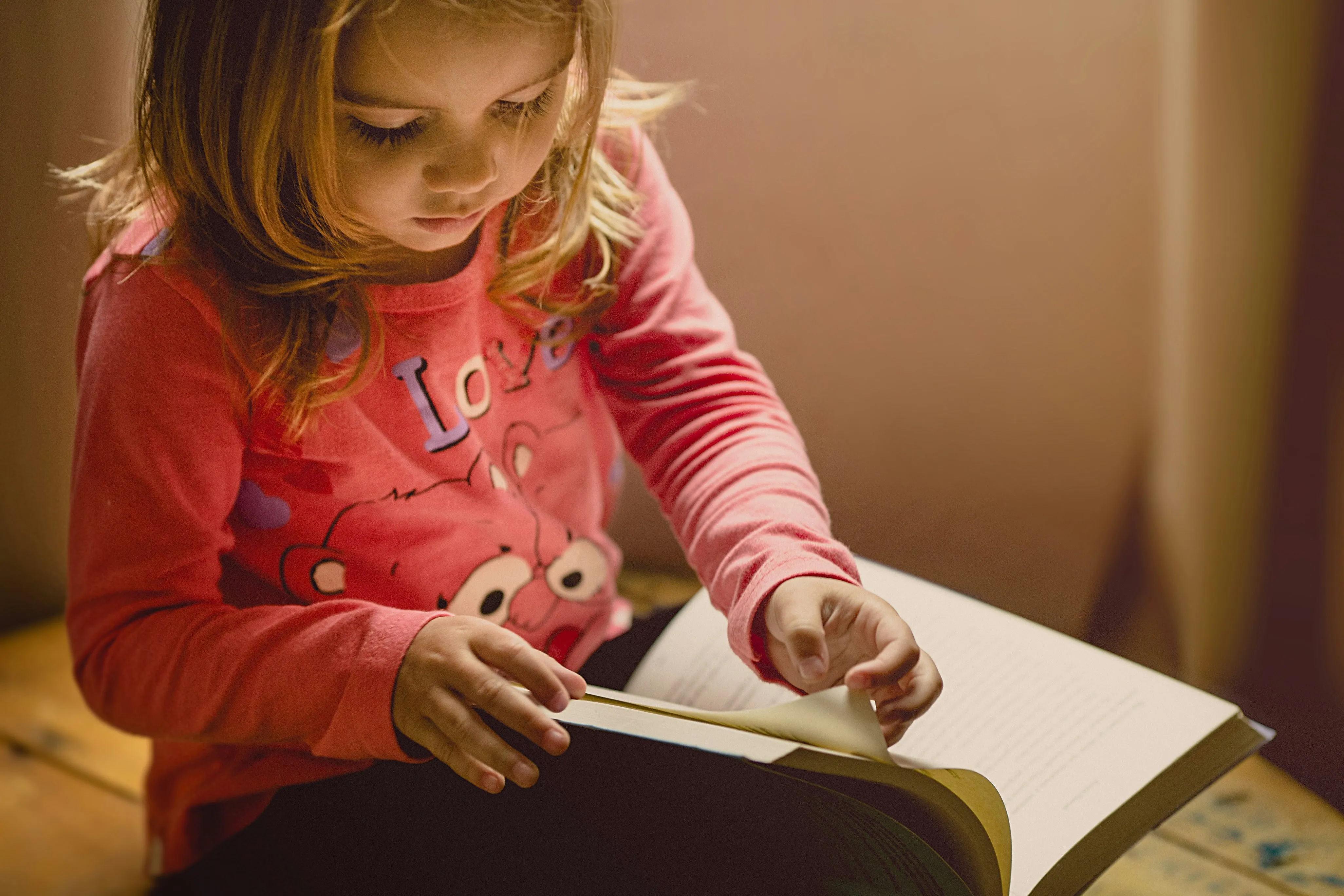Personalized Education for 0 to 36 Months: Tips for Success
Success Tips for Personalized Education from Birth to 3 Years

What is personalized education for infants and toddlers?
Parenthood is a journey filled with joy, excitement, and sometimes, uncertainty. As parents, we want nothing more than to provide the best opportunities for our children, especially when it comes to their education. Early childhood is a critical period for development, laying the foundation for future learning and success. In this blog, we will explore the concept of personalized education for children aged 0 to 36 months and provide you with valuable tips for nurturing your child's growth and development during this important phase of their lives.
Understanding the Importance of Early Childhood Literacy Skills Development
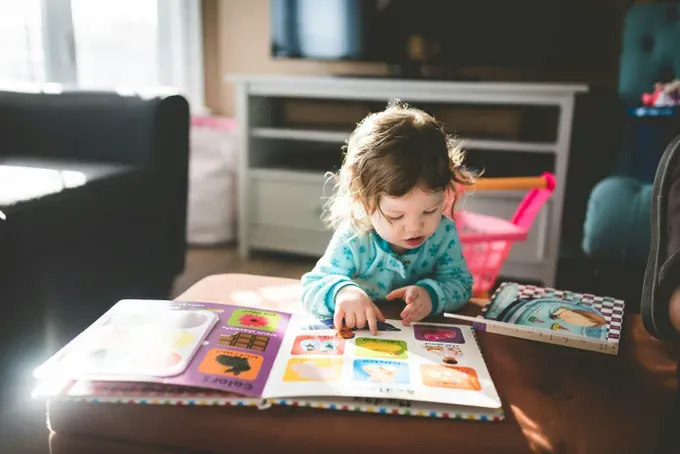
During early childhood, every experience shapes a child's brain, laying the groundwork for cognitive, social, emotional, and physical development. It is during these early years that children make significant strides in their literacy skills development, which forms the basis for future academic success. By fostering a love for reading, providing consistent exposure to speech and language, and nurturing growth through personalized education, parents can play a vital role in supporting their child's early childhood literacy skills development.
The Role of Reading in Early Brain Development

Reading to infants and young children from an early age has a profound impact on their brain development. Research suggests that early intervention through reading supports cognitive development, language skills, and overall brain health. As babies listen to the rhythm, sounds, and cadence of spoken words, their brain begins to make connections, strengthening neural pathways. By exposing children to reading at just a few months of age, parents can promote early cognitive development, language acquisition, and the joy of experiencing books.
Consistent exposure to reading also fosters a love for books and learning. As children engage with stories, they gain new vocabulary, develop listening skills, and expand their understanding of the world. The nurturing act of reading together creates a bond between parent and child, promoting emotional development and a sense of security. As children grow, they start to associate reading with positive experiences, sparking their curiosity and building a solid foundation for future academic success.
The Importance of Consistent Exposure to Speech and Language

In addition to reading, consistent exposure to speech and language is vital for a child's development. Language skills are the building blocks of communication, allowing children to express themselves, engage with others, and participate actively in their environment. By encouraging verbal interaction, parents can support their child's language development from an early age.
Engaging young children in conversations, describing objects, narrating daily activities, and responding to their vocalizations lays the groundwork for healthy language acquisition. Research shows that children who are exposed to rich language experiences have a greater vocabulary, better expressive and receptive language skills, and improved cognitive abilities. Consistent exposure to speech and language also helps children build early literacy skills, such as phonological awareness, phonics, and comprehension, setting them up for success in reading and writing later on.
Personalized Education from Prenatal to 3 months
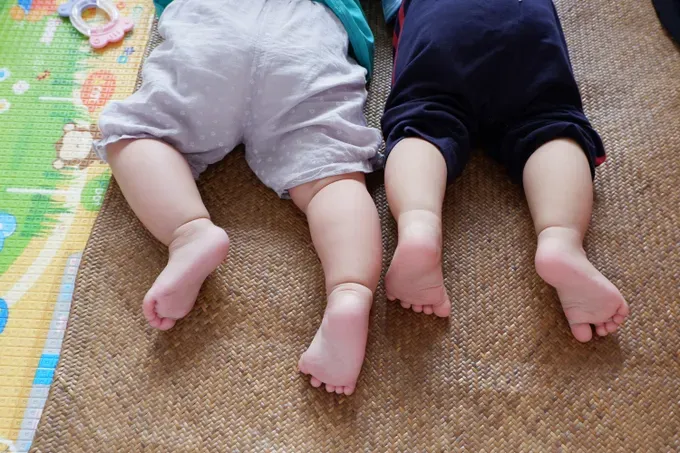
From prenatal care to the first three months of life, personalized education plays a crucial role in nurturing a child's healthy development. This early stage sets the foundation for future growth and learning. As a parent, you can support your child's development by understanding key areas of growth during this period and implementing specific tips to nurture their growth effectively. Let's explore these key areas of development and tips for promoting growth from prenatal care to the first three months of a child's life.
Key Areas of Development
During the prenatal period and the first three months of life, children experience rapid development in various areas. The key areas of development during this stage include physical, cognitive, social-emotional, and language skills.
First and foremost, nurturing physical activity is essential for a child's healthy development. Encourage tummy time, where babies spend time on their stomachs, to help strengthen their neck and back muscles. This activity promotes motor skills development and helps prevent the occurrence of flat spots on their heads. Additionally, interact with your baby through gentle touch, massage, and movement, as these experiences contribute to their overall physical development.
Beyond physical development, early intervention is critical for cognitive development. Engage your child with age-appropriate toys that stimulate their senses, such as rattles, soft toys, and mirrors. These interactions help develop their cognitive skills, including attention, memory, and problem-solving abilities. As a parent, you play a vital role in supporting cognitive development by providing a nurturing and stimulating environment that encourages exploration, curiosity, and play.
Tips for Nurturing Growth

As a caregiver, your presence and nurturing care have a significant impact on your child's healthy development during the prenatal period and the first three months of life. Here are some tips to help nurture your child's growth:
- Provide nurturing care during and after pregnancy: Attend regular health care provider consultations, follow a healthy lifestyle, and seek emotional support to promote your well-being, which in turn, positively impacts your child's development.
- Embrace physical activity and play: Engage in physical activities such as gentle exercises and movements, which promote physical development and strengthen the caregiver-child bond.
- Make eye contact and interact: Your baby's brain thrives on social interactions, even from an early age. Make eye contact, smile, and respond to their coos, movements, and facial expressions. This nurturing interaction supports early social-emotional development.
- Establish a routine: Babies feel secure and thrive in a familiar routine. Establish consistent daily rituals, such as feeding, napping, and playtime, to create a predictable and nurturing environment.
- Provide a safe and stimulating environment: Create a nurturing space that encourages exploration, play, and learning. Ensure that your child's environment is free from hazards and offers age-appropriate toys and activities that promote development.
- By adopting these nurturing tips, you can provide the personalized education your child needs during the prenatal period and the first three months of life, setting them on a path of healthy development.
Personalized Education from 3 to 6 months

During the second phase of early childhood, from 3 to 6 months, children continue to reach important stepping stones in their development. Engaging children in age-appropriate activities and providing a nurturing environment during this stage can support their cognitive, physical, social-emotional, and language skills. Let's explore the stepping stones to expect during this period and discover activities that encourage cognitive development.
Stepping Stones to Expect
Between 3 and 6 months of age, babies begin to develop new skills, which build upon their previous achievements. During this stage, you can expect your child to start reaching for and grasping objects, rolling over, and showing more interest in their surroundings. These motor skills development stepping stones indicate an increasing awareness of the world around them and are essential building blocks for further physical and cognitive growth.
It's important to remember that each child develops at their own pace, so do not be overly concerned if your child does not achieve all the expected stepping stones at precisely the same age as others. However, providing age-appropriate activities and a nurturing environment can help support your child's development during this period.
Activities to Encourage Cognitive Development
Promoting cognitive development during the 3 to 6 months stage of early childhood is crucial. Here are some activities you can engage in with your child to encourage cognitive development:
- Engage in pretend play: Use simple, age-appropriate props or toys to engage in pretend play with your child. Encourage them to imitate actions, explore different objects, and understand cause-and-effect relationships.
- Offer age-appropriate toys: Provide toys with different shapes, colours, textures, and sounds. These toys stimulate your child's senses and enhance their cognitive skills, such as visual tracking, spatial awareness, and problem-solving.
- Encourage accessibility to safe objects: Allow your child to explore and interact with objects in their environment, under close supervision, of course. This accessibility promotes curiosity, discovery, and cognitive growth.
- Create a language-rich environment: Talk, sing, and read to your child regularly. Expose them to a variety of words, sounds, and intonations, which enhance their language development and cognitive abilities.
- By engaging in these cognitive development activities, you can personalize your child's education during the 3 to 6 months stage, fostering their cognitive skills, creativity, and love for learning.
Personalized Education from 6 to 12 months
As your child continues to grow and reach new stepping stones, personalized education remains crucial for their development. From 6 to 12 months, children experience significant cognitive changes, language development, and physical advancements. In this section, we will explore these changes and discuss strategies to support your child's development during this stage.
Cognitive Changes and Their Significance
During the 6 to 12 months phase of early childhood, children undergo significant cognitive changes that lay the foundation for future learning. They become increasingly aware of their environment, develop object permanence (the understanding that objects exist even when out of sight), and start exploring cause-and-effect relationships. These cognitive advancements are essential for understanding, problem-solving, and building a solid cognitive framework.
Supporting your child's cognitive development during this stage involves offering engaging, age-appropriate activities, providing a nurturing environment, and encouraging exploration and discovery. By fostering cognitive development, you can help your child build a strong foundation for learning and future academic success.
Language Acquisition Strategies
Language acquisition is a crucial aspect of early childhood development, and the period between 6 to 12 months is particularly significant. Here are some strategies to support your child's language development during this stage:
- Engage in meaningful conversations with your child, using simple words, gestures, and facial expressions.
- Read age-appropriate books and point out pictures while describing them.
- Sing songs and nursery rhymes that involve repetitive sounds, words, and actions.
- Utilize baby sign language to facilitate communication and language development.
- Respond to your child's vocalizations, babbling, and attempts at communicating, reinforcing the importance of language and communication.
- By implementing these language acquisition strategies, you can play an active role in nurturing your child's early language development and communication skills, setting them up for successful language acquisition and future academic achievements.
Personalized Education from 12 to 18 months
From 12 to 18 months, toddlers undergo rapid development and transformation. Their physical, cognitive, language, and social-emotional skills continue to expand, and they become more assertive and independent. As parents, it is crucial to provide personalized education that aligns with their developmental stages and promotes their growth in key areas. Let's explore these developmental stages and learning techniques for 12 to 18 months old toddlers.
Developmental Stages and Learning Techniques
Between 12 to 18 months of age, toddlers go through significant developmental stages. At this age, they start walking, develop fine motor skills, and express themselves through simple words and gestures. These developmental stepping stones indicate children's increasing independence, curiosity, and motor skills development, laying the foundation for future learning.
To support your child's development during this stage, focus on age-appropriate learning techniques that encompass their interests, abilities, and the world around them. By offering a personalized education, you can foster cognitive, physical, language, and social-emotional development, setting the stage for further growth.
Promoting Independence and Self-confidence
Promoting independence and self-confidence is crucial during the 12 to 18 months stage of early childhood. Here are some tips to nurture independence and self-confidence in your toddler:
- Encourage your toddler to engage in age-appropriate self-help skills, such as feeding themselves, drinking from a cup, or dressing themselves.
- Provide opportunities for your toddler to make choices within safe boundaries, empowering them to assert their preferences and develop decision-making skills.
- Praise and acknowledge your toddler's efforts and accomplishments, nurturing their self-esteem and self-confidence.
- Foster a nurturing environment that allows your toddler to explore, experiment, and learn through trial and error, building resilience, and independence.
- By nurturing independence and self-confidence, you are setting the stage for your toddler's future growth, development, and success.
Personalized Education from 18 to 36 months
The period from 18 to 36 months, often referred to as the toddler years, is an important stage of development. During this time, children experience significant physical, cognitive, language, and social-emotional growth. Parents can help prepare their children for preschool and promote their social skills and emotional development by providing a personalized education that caters to their unique needs and interests. Let's explore personalized education strategies for children aged 18 to 36 months.
Preparing Your Child for Preschool
Preparing your child for preschool involves nurturing their independence, fostering a love for learning, and supporting social and emotional development. Here are some strategies to prepare your child for preschool:
- Encourage daily routines and a consistent schedule to familiarize your child with structure and build healthy habits.
- Introduce age-appropriate toys, activities, and experiences that mimic preschool settings, such as pretend play, group play, and sharing.
- Gradually increase separation periods, starting with short durations, to help your child adapt to being away from you.
- Engage your child in playdates or preschool-like group activities to develop social skills and encourage interactions with peers.
- Communicate with preschool educators, inquire about their curriculum, and align your child's personalized education plan with their preschool requirements.
- By taking these steps, you can help your child transition smoothly into preschool, setting them up for a successful early education experience.
Encouraging Social Skills and Emotional Development

Promoting social skills and emotional development during the toddler years is crucial for healthy relationships and future interactions. Here are some strategies to support your child's growth in these areas:
- Encourage playdates and group activities to foster social interaction and cooperation with peers.
- Teach empathy by modelling and discussing feelings, emotions, and appropriate responses.
- Encourage imaginative play to enhance creativity, empathy, and emotional understanding.
- Seek guidance from health care providers or early childhood professionals to address behavioural concerns or challenges in social and emotional development.
- Foster open communication and create a nurturing environment that acknowledges and validates your child's emotions, promoting self-regulation and healthy expressions of feelings.
- By promoting healthy social skills and emotional development, you are providing your child with essential tools for building positive relationships, self-awareness, and resilience.
Overcoming Common Issues of Concern in Early Education
As parents, we often encounter common issues of concern when it comes to early education. However, personalized education can address these concerns effectively, ensuring that children receive tailored support and resources. By embracing accessibility, nurturing caregiver-child interactions, and promoting physical activity and play, parents can overcome common issues of concern, creating a nurturing and enriching early education experience for their children.
How to Make Learning a Fun Experience for Toddlers?
Making learning a fun experience for toddlers is essential for capturing their attention, engaging their curiosity, and promoting a love for learning. Here are some tips to make learning enjoyable for toddlers:
- Incorporate play-based learning activities: Engage children in age-appropriate games, puzzles, and hands-on experiences that are both educational and fun.
- Follow their interests and preferences: Observe your child's interests and tailor learning experiences to align with their curiosity and natural inclinations.
- Create an engaging learning environment: Use bright colours, visual aids, and interactive materials to spark interest and make learning visually stimulating.
- Encourage sensory experiences: Provide opportunities for children to engage with different textures, sounds, and scents, enhancing their sensory development and making learning a multisensory experience.
- Incorporate music, movement, and storytelling: Use songs, dance, and storytelling to capture your child's imagination and actively engage them in the learning process.
- By creating a fun and enriching learning environment, you can instill a lifelong love for learning in your toddler, setting them up for academic success and a positive attitude towards education.
7 Frequently Asked Questions Answered By Our AIs
What is personalized education for infants and toddlers?
Personalized education for infants and toddlers involves tailoring learning experiences to meet the individual needs of each child. It encompasses activities that focus on language, cognitive, social, emotional, and physical development. This approach recognizes that children develop at their own pace and have unique strengths and weaknesses. Parents or caregivers can create a personalized education plan based on their child's interests, abilities, and stages of development. By providing individualized support, personalized education helps children reach developmental stepping stones, foster a love of learning, and build a strong foundation for future academic success.
PERPLEXITY AI SAYS:
Personalized education for infants and toddlers is an approach that tailors learning experiences to each child's unique needs, skills, and interests. This method recognizes that children learn in different ways and at different paces, and it aims to create a learning plan that's based on what they know and how they learn best[1].
In the context of infants and toddlers, personalized education often involves individualized care routines and daily schedules[3]. These routines can support children's social and emotional development, as well as their cognitive and physical growth. For example, during routine care, a caregiver might engage a child in one-on-one conversation, talking about what is happening in the moment and pointing out things that are familiar to the child[3].
Personalized learning can also involve the use of appropriate toys and props to stimulate an infant's or toddler's visual, auditory, and tactile capabilities[6]. For example, toddlers can learn about their environment, their family, and themselves through their physical senses and their movement experiences[6].
Moreover, personalized learning can involve one-on-one teaching, where educators understand what the child already knows and bridge existing knowledge to new concepts and skills by creating customized lesson plans[7]. This approach can also involve peer help or mentoring, where children can receive personalized learning from their peers[7].
In essence, personalized education for infants and toddlers is about creating a learning environment that is responsive to each child's unique needs and interests, fostering their development in a way that is engaging, meaningful, and relevant to them. This approach can help to ignite children's imaginations, inspire creativity, and cultivate a deep-rooted passion for learning, aligning with the mission of LearningTime Canada.
How can personalized education for infants and toddlers prepare them for future academic success?
Personalized education for infants and toddlers plays a crucial role in preparing them for future academic success. By tailoring learning experiences to each child's specific needs, personalized education helps children reach developmental stepping stones in cognitive, language, social, emotional, and physical skills. This individualized approach fosters a love of learning, enhances problem-solving abilities, and cultivates critical thinking skills from an early age. Children who receive personalized education are more likely to be engaged, motivated, and confident in their abilities, setting the stage for later academic achievements. Additionally, personalized education can identify and address any developmental delays or learning difficulties early on, ensuring that children receive appropriate support and intervention.
Is it necessary to hire a professional or can parents create their own personalized education plan for their child?
PERPLEXITY AI Says:
Parents can indeed create their own personalized education plan (PEP) for their child. A PEP is a document that outlines a student's academic goals, strengths, areas for improvement, and learning needs. It is created by the student and their parents or guardians, in collaboration with their education coaches, course instructors, and/or school counselor[4].
However, it's important to note that creating a PEP requires a deep understanding of the child's learning style, strengths, and challenges. Parents need to be aware of their child's academic and career goals, any learning disabilities or special needs they may have, and any other factors that may affect their academic performance[4].
In Canada, there are resources available to assist parents in creating a personalized learning plan. For instance, Schoolio is a platform that provides a vast library of educational resources for K-8 for Canadian students. It allows parents to take an active role in their child's education, providing access to an extensive library of core curriculum materials in math, language, science, and social studies[6].
Artificial Intelligence (AI) can also play a significant role in personalizing education for every student. AI-powered adaptive learning platforms analyze student data, such as their performance, strengths, weaknesses, and learning preferences, to tailor learning experiences[5]. There are numerous AI tools available for personalized learning, such as TutorAI, Ada, Unschooler, PeerAI, Adaptiv Academy, and MyLessonPal[2].
However, while parents can create a PEP, it may be beneficial to seek professional assistance to ensure the plan is comprehensive and effective. Professionals can provide expertise and resources that parents may not have access to, and they can help navigate challenges that may arise during the implementation of the plan[4].
In conclusion, while hiring a professional is not necessary, it can be beneficial. Parents can create their own personalized education plan for their child, especially with the help of AI tools and Canadian resources. However, professional assistance can provide additional support and expertise.
What are the benefits of personalized education for children aged 0-36 months?

Personalized education offers numerous benefits for children aged 0 to 36 months, supporting their healthy development and overall well-being. Some key benefits include:
- Individualized support: Personalized education recognizes and caters to each child's unique needs, abilities, and interests, promoting optimal development.
- Early intervention: Tailored learning experiences can identify and address developmental delays or challenges early on, minimizing potential long-term impacts.
- Holistic development: By focusing on various areas of development, such as cognitive, language, social, emotional, and physical skills, personalized education provides a well-rounded educational experience.
- Enhanced parent-child bond: Personalized education actively involves parents, fostering a stronger bond between child and caregiver, which positively influences development and learning.
- Love of learning: By tailoring education to children's interests and abilities, personalized education cultivates a love for learning from an early age, setting the stage for future academic success.
Can personalized education help with early childhood development?
Yes, personalized education can greatly support early childhood development. By focusing on age-appropriate activities, nurturing caregiver-child interactions, and tailoring education to children's unique needs, personalized education fosters cognitive, physical, language, social-emotional, and motor skills development. It provides children with targeted interventions, individualized attention, and engaging learning experiences, enhancing their overall development. Personalized education acknowledges children's unique strengths and weaknesses, ensuring that they receive appropriate support and resources to thrive during this critical period of growth and development.
How can parents get involved in their child's personalized education plan?
Parents play a crucial role in their child's personalized education plan. Here are some ways to get involved:
- Communicate: Stay informed and communicate with your child's educators, healthcare providers, and early childhood specialists. Share insights about your child's development, observations, and concerns.
- Collaborate: Work with professionals to create a personalized education plan that aligns with your child's strengths, learning styles, and developmental needs.
- Offer support: Reinforce learning at home by following recommendations, engaging in age-appropriate activities, and providing nurturing and stimulating environments.
- Attend meetings and conferences: Participate in parent-teacher conferences, workshops, or seminars to gain knowledge, seek guidance, and collaborate with professionals.
- Evaluate and adjust: Regularly evaluate the effectiveness of the plan, monitor your child's development, and make adjustments as necessary.
- By actively participating in your child's personalized education plan, you can enhance their learning experience, reinforce their development, and contribute to their overall growth and well-being.
What are the benefits of Personalized Read Aloud Books in Personalized Education?
PERPLEXITY AI Says:
Personalized Read Aloud Books play a significant role in personalized education, offering a range of benefits that cater to the individual needs and interests of each child. Here are some of the key advantages:
Engagement and Interest
Personalized storybooks can significantly increase a child's engagement with reading material. When children see their name and personal details within the story, they become more invested and are likely to maintain interest until the end[1]. This heightened interest can make reading feel less like a chore and more like an enjoyable activity, which is crucial for young children who are still developing their reading habits[1].
Language Development
Reading aloud from personalized books can help children understand the fundamentals of reading and language. This interaction can aid in vocabulary acquisition and comprehension, as children often encounter new words and phrases that they can learn in a meaningful context[1]. Moreover, when parents read aloud with their children, they have the opportunity to explain difficult words and expressions, further enhancing language development[1].
Improved Learning Outcomes
Personalized learning, including the use of personalized books, has been associated with better learning outcomes such as higher retention rates and better assessment performance[2]. This is attributed to the content being more aligned with the child's needs and abilities, which can lead to a more fulfilling learning experience[2].
Cognitive and Listening Skills
Read-aloud eBooks, which can be a part of personalized learning resources, enhance listening and cognitive skills. The interactive features of these books, such as text-to-speech capabilities, can increase focus and comprehension[4].
Motivation and Self-Paced Learning
Personalized learning allows students to progress at their own pace, which can be particularly beneficial for children with varying levels of ability and learning styles[5]. It also encourages students to take initiative for their own education, fostering a sense of autonomy and intrinsic motivation[5].
Customization and Relevance
Personalized learning plans can be tailored to the short and long-term goals of the learner, taking into account their strengths, weaknesses, and interests[8]. This customization ensures that the content is relevant and engaging, which can lead to faster and more effective learning[8].
Emotional Connection
Personalized storybooks can create an emotional connection between the child and the story. By including the child's own experiences or interests, the books can become more meaningful and memorable, which can enhance the overall learning experience[1].
Increased Interactivity
The use of personalized read-aloud books often comes with interactive features that can engage children in the story. This interactivity can include open-ended questions that encourage children to think critically and reflect on the story[1].
In summary, Personalized Read Aloud Books in personalized education can lead to increased engagement, improved language development, better learning outcomes, enhanced cognitive skills, motivation for self-paced learning, content customization, emotional connection, and increased interactivity. These benefits align with the goals of providing a tailored and effective learning experience for each child, as emphasized by LearningTime Canada's mission to foster a lifelong love for learning through personalized storytelling.
Conclusion
Personalized education is an essential component for the development of infants and toddlers, as it lays the groundwork for their future academic success. Parents can create a tailored education plan that caters to their child's unique needs by focusing on early childhood literacy skills, consistent exposure to speech and language, and engaging in various activities. Personalized education can promote cognitive, social, and emotional development while preparing children for preschool and fostering independence and self-confidence. A professional is not necessary; parents can actively participate in their child's education plan and make learning an enjoyable experience.
To take your child's personalized education to the next level, sign up for a Personalized Learning Path from LearningTime Canada today! Our experts can provide guidance and support to help you create a customized education plan that meets the specific needs of your child. By taking an active role in your child's educational journey, you can ensure that they receive the best possible start in life and develop a lifelong love for learning. Don't wait, sign up now!
Related Articles:
Early Literacy Skills in Newborns to 36-Month-Olds
Embracing Matrescence: A Journey of Growth and Change
Citations:
https://www.understood.org/articles/personalized-learning-what-you-need-to-know
https://moonpreneur.com/blog/personalized-learning-for-kids/
https://childcareta.acf.hhs.gov/infant-toddler-resource-guide/infanttoddler-care-providers/planning-infants-and-toddlers/routines
https://www.edweek.org/technology/what-is-personalized-learning/2019/11
https://www.linkedin.com/pulse/importance-customized-individualized-learning-kids-anuriti-bhargava
https://choosykids.com/pages/active-learning-of-infants-and-toddler%20%20
https://mybrightwheel.com/blog/personalized-learning
https://www.valamis.com/hub/personalized-learning
https://www.frogstreet.com/curriculum/infant/
https://www.noggin.com/resources/noggin-personalized-learning/
https://brightchamps.com/blog/homeschooling-benefits/
https://blog.brookespublishing.com/24-at-home-learning-activities-to-share-with-parents-of-young-children/
https://www.hmhco.com/blog/what-is-personalized-learning-in-education
https://tenneyschool.com/personalized-learning-how-custom-education-can-benefit-your-child/ https://ecep.uark.edu/_resources/pdf_other/06_division_materials/strategies_activities_infant_toddler2018.pdf
https://otsimo.com/en/personalized-learning/
https://www.theeducatoronline.com/k12/news/5-key-benefits-of-personalised-learning/275243
https://teachingstrategies.com/product/the-creative-curriculum-for-infants-toddlers-twos/
https://xello.world/en/blog/student-engagement/personalized-learning/
https://link.springer.com/article/10.1007/s10648-020-09570-w


